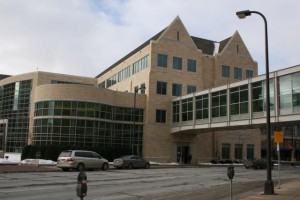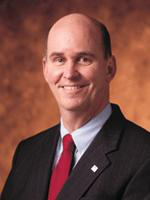The St. Thomas law school was dropped out of the U.S. News and World Report rankings after the school accidentally provided incorrect information regarding employment rates after graduation.

U.S. News placed the university in its “unranked” category; it had been tied in rank with seven other schools at No. 119.
One line was correct in listing that 51 of 155 law graduates were employed after graduation (32.9 percent). But another line incorrectly stated 125 graduates were employed after graduation (80.6 percent).
The mistake was a “human error” according to Robert Vischer, associate dean for academic affairs at St. Thomas Law. Thomas Mengler, the school’s dean, responded on March 26 to the move in an “open letter” to Robert Morse, the director of data research at U.S. News.
“When other law schools lied, you called on all law schools to protect the integrity of the data and ultimately the reporting,” Mengler wrote. “We did that even for an unintentional mistake. And while we are willing to live with the unfortunate consequences, I fear your decision will serve as a disincentive for others to self-report errors.”
Over-reporting law school data has become an issue of national controversy in recent months because some schools have intentionally altered data to climb in the ranks. Lawschooltransparency.com stated that it has been trying to draw attention to the problem for the past two years.

More than 20 schools have been the target of lawsuits over claims of inflating statistics in the past year, according to Jdjournal.com. All the schools in question have altered data regarding student grades or employment (selectivity), according to charges in the lawsuits.
The University of Illinois Law School fell 12 spots in U.S. News’ latest ranking to No. 35 for an admissions scandal where the school’s admissions dean was implicated in falsifying data about grade point averages and Law School Admissions Test scores, according to the Chicago Tribune.
Senior Michael Ed believes it is unfair that schools like Illinois are still ranked by U.S. News after scandals occur, and St. Thomas is punished for quickly reporting a mistake.
“I think that they are kind of letting big schools get away with things that little private schools can’t get away with,” Ed said. “It might be because we are new, but I don’t know.”
Vischer said St. Thomas doesn’t know if the decision to “unrank” the university was in any way influenced by the national over-reporting scandals because U.S. News has not responded to a request by the school for clarification on their decision.
U.S. News uses 12 measures to rank law schools that fall under three broad categories: quality assessment, selectivity and faculty resources.
Quality assessment, which receives the most weight, is based on a review by external sources such as law school deans and administrators, lawyers and judges.
Selectivity, the second most weighted category, is based on measures such as median LSAT score, median GPA, placement success and employment rate after graduation, the category in question in the St. Thomas case.
U.S. News uses employment rates for graduates to rank law schools and gives the statistic a weight of .04 in the overall ranking. LSAT scores and GPAs make up 22.5 percent of the score used to rank schools.
Vischer said that being ranked is convenient because it organizes comparable data “in a nice package with a ribbon on it,” and that being “unranked” means the university must be more proactive in making sure students get data.
Mengler’s letter to Morse also expressed concern that U.S. News had departed from its policy of not revising previously published rankings.
Ed, who will be attending the law school next school year, was disappointed that U.S. News “unranked” St. Thomas Law for the mistake.
“St Thomas is so transparent in everything they do,” Ed said. “I think it is unjust for (U.S. News) to do that.”
Not all students are as understanding as Ed. Sophomore Karah Kregness said the error was ridiculous.
“Maybe they should triple check next time before they turn in their numbers,” she said.
Kregness plans to attend law school and will be using various rankings to determine which schools she will apply to.
“If I hadn’t gone to St. Thomas for my undergrad, I might not have considered them for law school just because I either read about what happened or saw they were ‘unranked,’” Kregness said.
As a policy matter, Vischer said, “U.S. News has made a decision that is counter-productive to where we are trying to head in the field of legal education.”
Patrick Roche can be reached at roch6667@stthomas.edu.

“Accidentally”